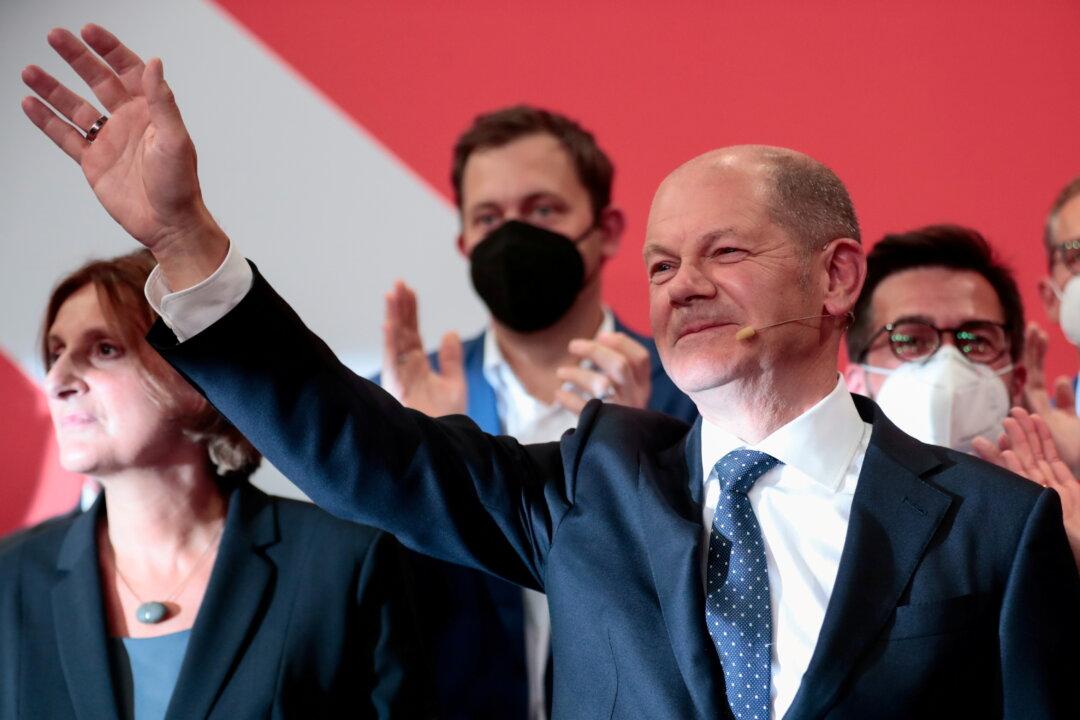BERLIN—Germany’s Social Democrats, who narrowly won Sunday’s national election ahead of Chancellor Angela Merkel’s conservatives, said on Tuesday they hoped to talk to the Greens and Free Democrats later this week about forming a three-way government.
The Greens and the liberal FDP, who are far apart on many issues have said they will first consult with one other about possible areas of compromise before starting negotiations with either the Social Democrats (SPD) or the conservatives.





